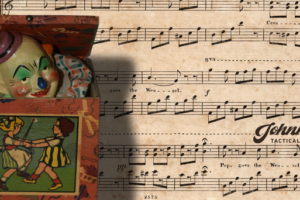The pickup truck pulled over and I called in the traffic stop, sounding like a nervous robot. My heart was pounding as I anticipated stepping out and making my approach. I cut down my flashing blue lights to the rear only and then turned on the take-down lights. Aimed at the truck’s back window, my spotlight cut through the winter darkness like a ray of truth and justice. Traffic stops still made me nervous even though I was several weeks into my field training.
My FTO stayed in the cruiser as I stepped out. He was either feeling more confident in my ability to ask for a license and registration or was just far happier staying warm. I guess he figured he’d get out and save me if he really had to, but I was determined to avoid needing any saving.
Something Shiny
I was barely out of my cruiser when I saw the arm extended out of the driver’s window — this guy wasn’t wasting any time. It took me a second to see what was in his hand and to process what was going on, but when I did, I was taken aback. I certainly hadn’t expected it.
The driver’s left arm was out of the window, prominently displaying a shiny badge glinting in the beam of my spotlight. I was about five steps from the window when the silhouette from inside the truck bellowed the name of the police department he worked for like he was about to boot a door and execute a warrant. His tone was annoyed and impatient. I guess I had taken too long calling in the stop, setting up my lights, and making my approach.
Say Hello
After showing me his badge and announcing he was a cop, the first thing he asked me was, Who’s your FTO?
What!? How did he know I was in training? I had literally just walked up to his window.
I told him who my FTO was, he told me to tell him he said hello, and then he drove away. I stood there bug-eyed in the dark like a lidless statue, still holding my flashlight which was now pointed at the side of the road where a pickup truck used to be.
What just happened? I didn’t know what to think or do, I just remember feeling like a rookie, or more specifically, like an idiot. That was the first time I had ever pulled over another cop.
Terms Of Endearment
Being called a rookie never feels like a term of endearment, probably because it’s not. Quite the opposite. No one wants to be the new guy or known as a beginner, it’s embarrassing. And if ever the topic comes up, we just talk and act like an old pro so as not to arouse suspicion. The last thing we want to do is admit we haven’t been there or done that. We all want to be considered a veteran — experienced and knowledegable.
As the years passed and the tables turned, I went from trainee to trainer, and began to see the value of having a beginner’s mindset. Rookies are eager to ask questions, to try new things, to take advice, and to learn. Salty veterans, well, not so much. If you’ve ever had to run a training class with a room full of crusty old cops, you know what I mean. Somewhere along the way their minds went from sponges to cinder blocks. They stopped asking questions and started giving answers. And because of that they have become set in their ways like concrete and are more concerned with their image than their improvement. They lost their curiosity.
Beginner’s Mindset
Being a beginner is one thing, having a beginner’s mindset is another. There is a ton of value in experience, exponentially more than what you might get from books or the classroom alone. But experience, books, and the classroom are not mutually exclusive; they are interdependent parts of learning that need each other to flourish. A beginner’s mindset is necessary for learning and for continued personal growth and development. It all begins with curiosity, the idea that there are questions that need answers and new things to discover.
One of the greatest inhibitors to learning is pride. Pride is more about appearance than substance. It’s desire is to be seen as an expert, not as a beginner, and to avoid looking stupid in front of others at all costs. It requires the facade of having all the answers and not being bothered with new information. The beginner, on the other hand, is willing to try new things, is open to new ideas, and willing to risk not getting it right.
Pride manifests itself in us primarily via two defense mechanisms: being afraid to fail and taking ourselves too seriously.
Afraid To Fail
It’s easy to see making mistakes as a sign of weakness or incompetence, especially in law enforcement. It’s a culture where failure is never really an option and we are quick to eat each other’s failures for lunch. But people with a beginner’s mindset see failure as a sign of progress because they are determined to understand why that failure happened, what they can learn from it, how they can grow from it, and what they can do better next time. If you never allow yourself to fail then you are stunting your own growth. It’s no different than a baby learning to walk or a kid learning to ride a bike. They fail, they fall, they get up, they try again, but before long they are going places.
To diminish your fear of failure, try new things. Fail fast. Learn fast. Try again. The faster you repeat this cycle the further ahead of everyone else you will be.
Way Too Serious
It’s one thing to take your work seriously, it’s quite another thing to take yourself seriously. The inability to see yourself as fallible is just another form of hypocrisy. Mistakes will happen — it’s not a matter of if but when. And when they do, own them, laugh at them when necessary, apologize when appropriate, learn from them, and move on.
After processing the scene of a burglary with fingerprint powder, I spoke all high and mighty to the homeowner and made it sound like I was God’s gift to law enforcement. All the while my face was covered in black fingerprint powder and I looked like a moron. Neither the homeowner nor any of my coworkers had the heart to tell me the truth. In my own mind, I was one thing, but in the eyes of everyone else I was another. At first I was angry, because my pride was hurt. But the senior guys around me helped me get over myself and have a good laugh.
Taking yourself too seriously creates a disconnect between your self-perception and reality. The sooner you laugh at yourself and own your blunders the more genuine you will be perceived, and, in fact, will cause people to appreciate and connect with you more. Trying to push a false narrative by making excuses or pretending that didn’t happen in an effort to save face will just cause others to trust you less.
Attitude
Having a beginner’s mindset has everything to do with your attitude. It’s having an open mind without preconceived notions and then following the lessons where they lead. It doesn’t matter if you have one year on the job or twenty-one. Stop worrying about what other people think, ask lots of questions, try new things, go first, fail fast, and try again. If you can maintain the beginner’s mindset you will go places, too.
__________________________
- Is your mind a sponge or a cinder block?
- How afraid to fail are you?
- Do you take yourself too seriously?
- What is the first new thing you will try?
__________________________
Thanks for reading! Do you have a story that you think we could learn from and that you’d like to share with Johnny Tactical nation? Fill out the contact form and include your name, rank, and department, or email it to [email protected] and follow these guidelines:
– It must be a firsthand account
– True
– Have a lesson, principle, or tactic to apply
– Cleaned of names, dates, and places
– Include your call sign
If your story is selected and published in our blog you’ll get the credit using your call sign and we’ll send you a free Johnny Tactical morale patch.





Leave a Reply
Your email is safe with us.
You must be logged in to post a comment.